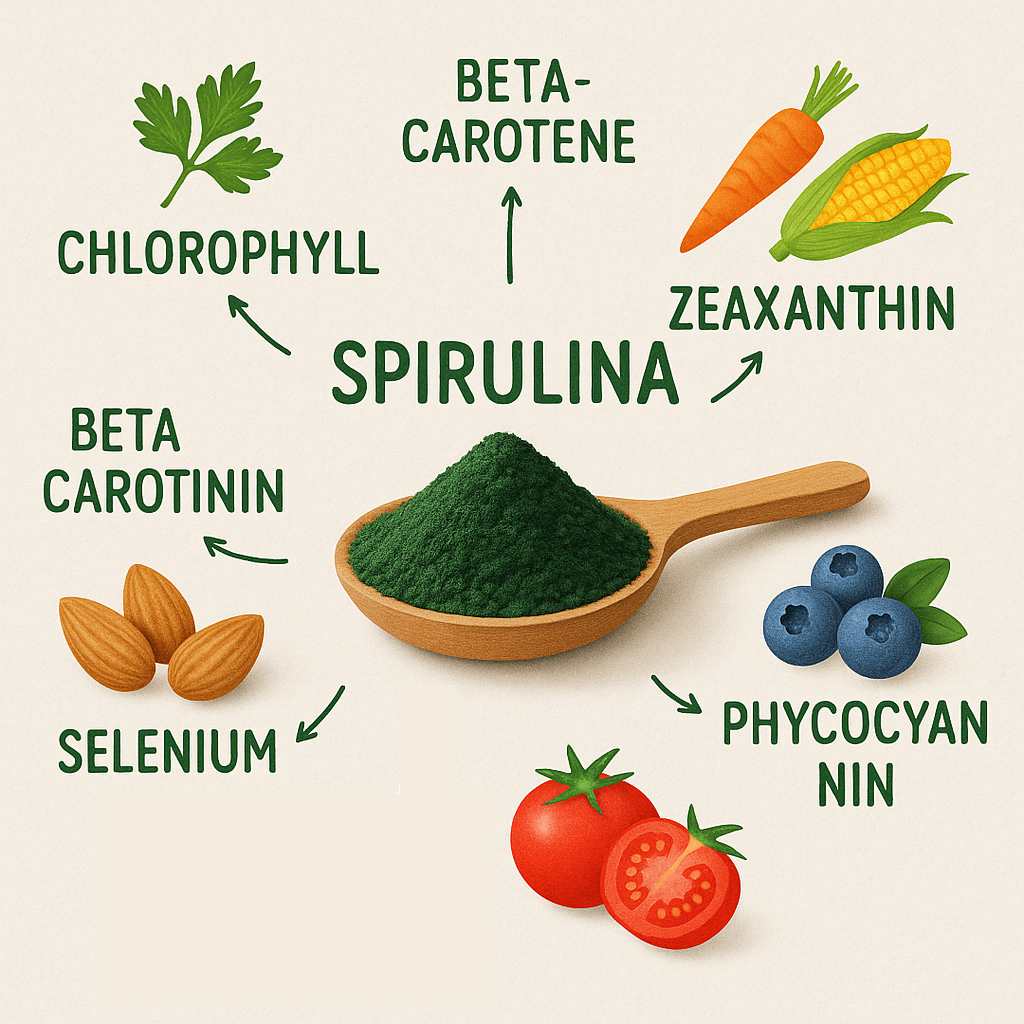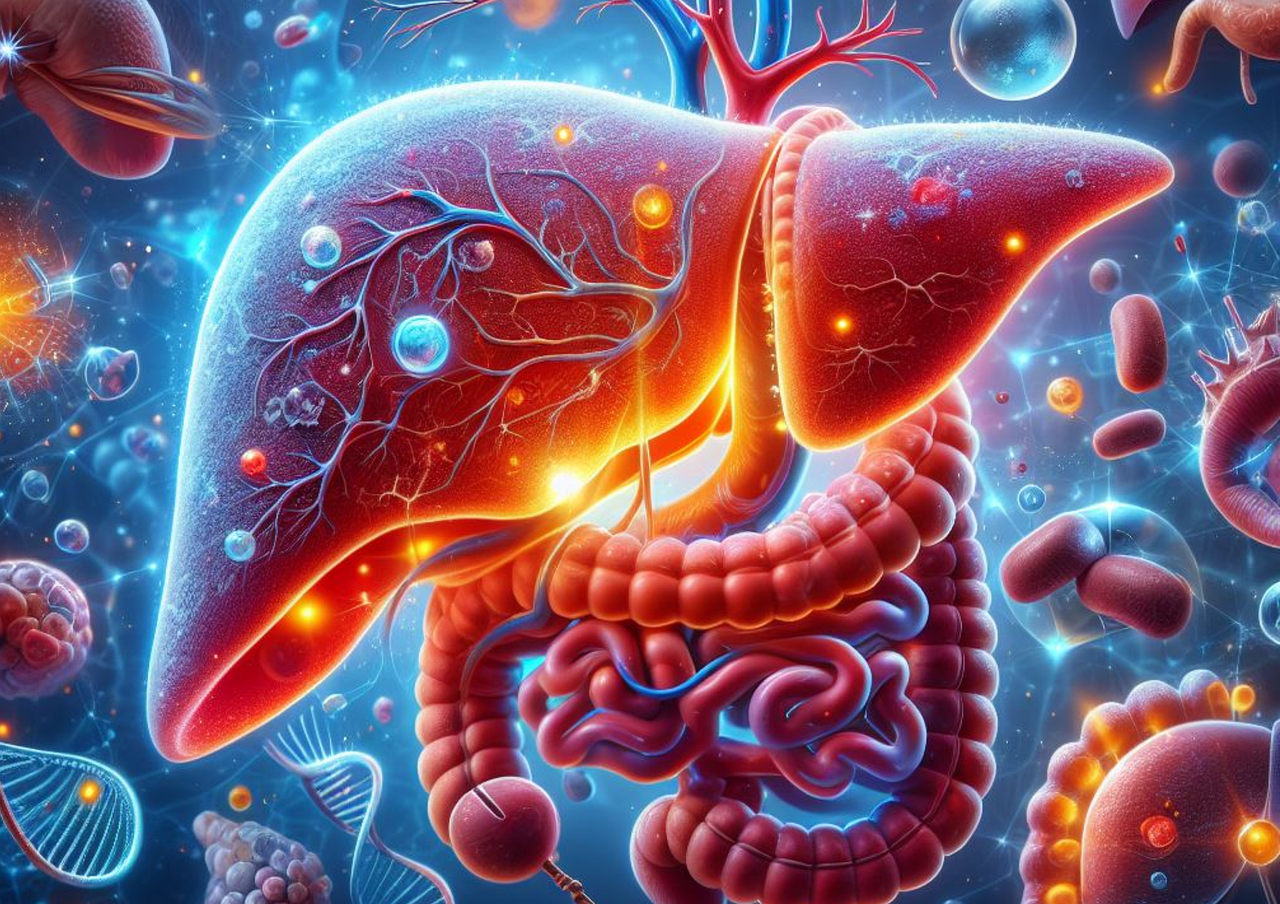
Anti-Oxident : Cyanopower & Cyanoamrut
Spirulina is a best-in-class natural antioxidant supplement, offering exceptional potency, concentration, and efficacy in combating oxidative stress. It contains a diverse array of antioxidant compounds, including phycocyanin, β-carotene, vitamin E, selenium, chlorophyll, and superoxide dismutase (SOD), each with distinct mechanisms for neutralizing reactive oxygen species (ROS) (Khan et al., 2005; Belay, 2002). Phycocyanin, unique to Spirulina, exhibits potent free radical-scavenging activity and has been shown to inhibit lipid peroxidation and DNA damage (Romay et al., 2003). Its high β-carotene content, surpassing that of carrots, contributes to sustained cellular integrity, immune regulation, and skin protection (Jiménez-Escrig et al., 2001). Studies demonstrate that Spirulina’s antioxidant action is dose-dependent and systemically bioavailable, making it effective across multiple organ systems, including the liver, brain, and cardiovascular tissues (Ishii et al., 1987). Moreover, Spirulina enhances the expression and activity of endogenous antioxidant enzymes such as glutathione peroxidase, catalase, and SOD, reinforcing the body’s internal oxidative defense systems (Lu et al., 2010). With its unique combination of concentration, diversity, and bioefficacy, Spirulina is a powerful tool for managing oxidative stress, promoting recovery, healthy aging, and chronic disease prevention.
Selected References:

Detoxifier (Kidney, Liver) : Cyanopower & Cyanoamrut
Spirulina is one of the most effective natural detoxifying agents, with proven hepatoprotective and nephroprotective properties that set it apart in the category of algae-based detox supplements. Rich in bioactive compounds like phycocyanin, chlorophyll, polysaccharides, and gamma-linolenic acid (GLA), Spirulina facilitates the elimination of heavy metals, environmental toxins, and metabolic waste (Romay et al., 2003; Abdel-Daim et al., 2013). Its potent antioxidant profile neutralizes free radicals that typically damage hepatic and renal tissues while regulating inflammatory mediators such as TNF-α and IL-6, which are implicated in chronic toxicity (Lu et al., 2010; Khan et al., 2005). Preclinical and clinical studies have shown that Spirulina significantly lowers serum liver enzymes (ALT, AST), blood urea nitrogen (BUN), and creatinine, indicating measurable improvements in both liver and kidney function (Farooq et al., 2014; El-Sheekh et al., 2014). Spirulina also upregulates glutathione synthesis, a master antioxidant and key player in detoxification pathways (Belay, 2002). Additionally, it supports liver regeneration and offers tubular protection in kidneys from damage caused by heavy metals, drug toxicity, or oxidative overload (Aly et al., 2011). With this dual action—binding toxins and promoting tissue repair—Spirulina remains a superior, evidence-backed alternative to synthetic detox supplements.
Selected References:
← Back to Benefits